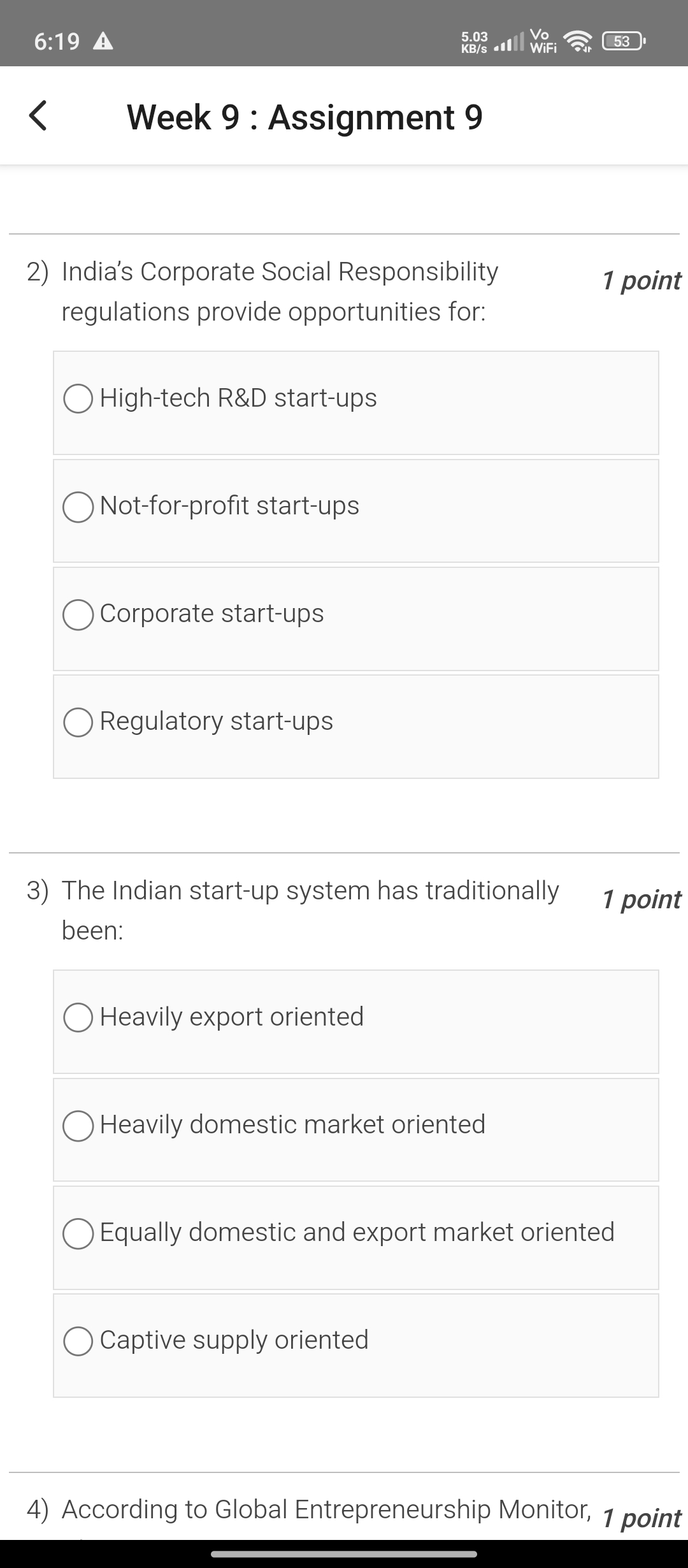India’s Corporate Social Responsibility regulations provide opportunities for: 1. High-tech R&D start-ups 2. Not-for-profit start-ups 3. Corporate start-ups 4. Regulatory start-ups... India’s Corporate Social Responsibility regulations provide opportunities for: 1. High-tech R&D start-ups 2. Not-for-profit start-ups 3. Corporate start-ups 4. Regulatory start-ups. The Indian start-up system has traditionally been: 1. Heavily export oriented 2. Heavily domestic market oriented 3. Equally domestic and export market oriented 4. Captive supply oriented. According to Global Entrepreneurship Monitor.

Understand the Problem
The questions are asking about India's Corporate Social Responsibility regulations and the characteristics of the Indian start-up system, specifically focusing on areas like opportunities for start-ups and market orientation.
Answer
Not-for-profit start-ups, Heavily domestic market oriented
- Not-for-profit start-ups, 2. Heavily domestic market oriented
Answer for screen readers
- Not-for-profit start-ups, 2. Heavily domestic market oriented
More Information
India’s CSR regulations provide opportunities for not-for-profit start-ups, as they are often beneficiaries of CSR funding. The Indian start-up ecosystem has traditionally been heavily domestic market oriented, focusing primarily on catering to the local market conditions and demands.
Tips
Ensure you understand the types of business entities that typically benefit from CSR regulations. Additionally, comprehend the historical market focus of Indian startups to make informed choices.
Sources
- Unpacking India's CSR Law - CAF America - cafamerica.org
- The Indian startup ecosystem: Drivers, challenges and pillars of support - orfonline.org
AI-generated content may contain errors. Please verify critical information